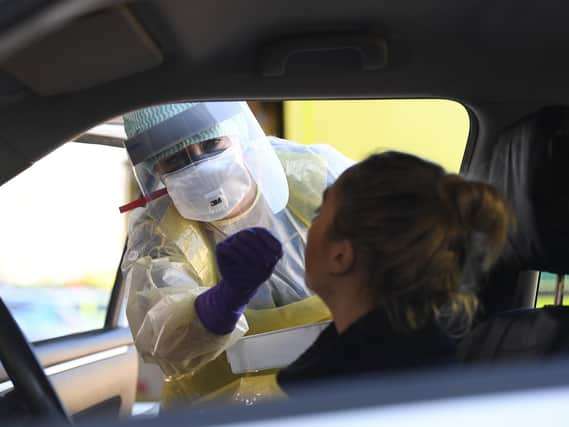Concerns at threats of coronavirus lockdown on Ulster farming sector


He asked: “Is there any planning happening in the industry around the potential impacts the virus and a worse case scenario, say for if we have a full or partial lockdown. How would that impact on marts and abattoirs?”
Responding to Mr Harvey’s question, Mr Gerard McGivern of the LMC, said: “Certainly from speaking to the businesses who are operating here in Northern Ireland, a lot of them have already taken steps ahead of the steps which are now being taken publicly across the UK. A lot of businesses with their workforces have already imposed non-essential travel bans within their own businesses.
Advertisement
Advertisement
“It is probably easier if you have someone who has come into contact with the coronavirus, you can deep clean a building. But the question is how do you do that to a factory that has product. So I know a lot of our processing businesses are very mindful of the developing situation. I think as an industry we play a key part in feeding the population, so we need to ensure hygiene.
“I do recall back when there was an outbreak of foot-and-mouth in 2001, which was a livestock virus and at that time livestock markets ceased to operate at that time because of the outbreak.
“That caused tremendous disruption and economic hardship on a lot of farms and other agricultural businesses. We certainly don’t want the situation developing into a scenario where there is a lockdown.
“Like everybody we are pretty concerned with developments and how its evolving.
Advertisement
Advertisement
“How its going to pan out over the coming days and weeks will be judged, I guess, by the experts on the health side in terms of what advice they give, but I do know that some of the industry players are doing what they can to minimise the potential exposure of their staff.
“It has been rightly said that a lot of our businesses operate across the UK and some have interests in Europe too. So there are people who are always moving, servicing customers and trying to developed new business. Where that can be done over the phone or by Skype businesses are opting for that. Many businesses are taking a responsible approach and that has to be encouraged.”
Adding to his question, Mr Harvey said: “You simply can’t lockdown the foodchain. At the minute there are a lot precautions. Certainly I am aware that some livestock markets have concerns about the developing situation.”
Later in the meeting Mrs Rosemary Barton (UUP, Fermanagh and South Tyrone) returned to the issue of coronavirus and its potential threat to livestock markets in Northern Ireland.
Advertisement
Advertisement
Mrs Barton asked: “Have you any thoughts on, if there was to be a lockdown because of coronavirus, how this would impacts marts? Or how we might attempt to deal with such a lockdown?”
Mr Ian Stevenson of the LMC replied by saying: “I guess that any business will take it’s lead from the advice that is given by the authorities.
“Back in the days of foot-and-mouth there were other alternative arrangements put in place at that time. Some of the marts operated video sales for example. There were things that could be done.
“But with us now, it all depends on how long a lockdown would be for. I think any sort of lockdown, especially when you have live animals in a system, that come to the market ready for finishing, they need to be moved.
Advertisement
Advertisement
“It is not going to be simple, its livestock which are on a growth pattern which have to be supplied into a supply chain.
“It will be very difficult with a lockdown when you have a system that almost depends on just in time movement, when an animal is ready for moving then it has to be moved to slaughter, then you need to get it away. Otherwise the animal will be out of spec.
“Livestock markets play an important part in establishing prices and that’s one of the key areas where farmers can measure the value that they are getting against direct to slaughter.
“They also play a vital part in our industry in terms of giving price transparency and price competition. I hope that we aren’t there yet with that lockdown, but we will certainly take our lead from the authorities.”